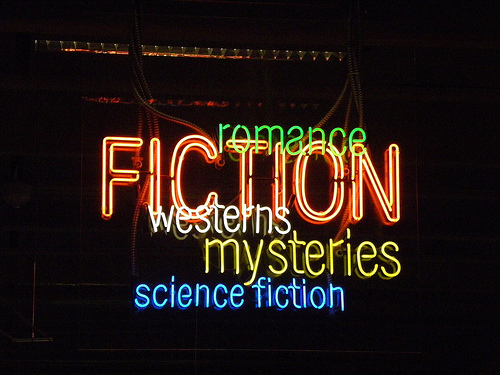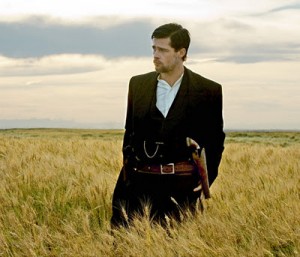You have no items in your cart. Want to get some nice things?
Go shopping
If you’re a regular user of your local library – that is, if you’re lucky enough still to have one – you’ll be familiar with the way the libraries categorise books for adults. If it’s anything like my fine county, Essex, their libraries separate the fiction from the non-fiction, with biography, probably appropriately in some cases, occupying a no-man’s land between the two. If you’re into non-fiction, then providing that you know your Dewey decimal classification system and can find the relevant shelves for The Technology of Biscuits, Crackers and Cookies by Duncan Manley (DDC 664.7525) as opposed to The Great Big Cookie Book by Hilaire Walden (DDC 641.8654), then you’re laughing.
It’s fiction that I find a little trickier. Years ago, I’m reliably informed by older relatives, fiction was all alphabetical. Daunting, perhaps, in a large library but you knew where to look. These days, fiction is subdivided into about a dozen categories, with its own coloured symbol on the spine of each book (red heart for Romance, devil for Horror etc.). In other words, you have to know more than just the author’s name to be able to find the book on the shelf. If you’re looking for Birdsong by Sebastian Faulks then try the Modern Fiction category. If you’re looking for The Mallen Streak by Catherine Cookson then try the Saga category. You would be correct in both cases. But try looking in either for The Founding by Cynthia Harrod-Eagles, who has written 33 other books to date about the Morland Dynasty, definitely a saga, and you’ll find that in the Historical Fiction category (with a white castle tower on the book’s spine). Write about living in Roman times if you must (still Historical Fiction) but whatever you do, don’t investigate any wrongdoing. If you do, you’ll find yourself in Crime (black handcuffs on a blue background), along with Shadows in Bronze by Lindsey Davis, one of the many excellent books in the Marcus Didius Falco series. Similarly, Patrick O’Brian, author of more than 20 classic books set sailing the seas in the Napoleonic Wars and after, such as Master and Commander and The Fortune of War can be found not in Historical Fiction but in the Adventure category (little stick man running with gold background). I’m sure there’s a set of rules somewhere and, anyway, the exercise running around the library is probably good for me.
With library fiction categorised in this way, I find it also gives a clue to the changing habits of the reading public. Over the years, Crime seems to have expanded considerably, perhaps because of the popularity of the many TV detectives (Wexford, Morse, Dalziel etc.) but also because of the high quality of much of the writing. Fantasy (blue unicorn on the spine) also seems to have expanded its shelf allocation, again probably because of the film and TV success of Lord of the Rings and Game of Thrones but also because the books themselves usually weigh in at more than 1000 pages. Certainly in Essex, they seem to have won this space at the expense of Science Fiction (letters SF on pink background) but I’m sure the aliens will fight back at some stage.

Finally, a few words for the most embattled category of all – Western (cowboy hat and gun on bright yellow background). Every year, the shelf space shrinks for this category and worse, is often placed in an obscure and rarely visited part of the library, near the service lift. The days when books such as Riders of the Purple Sage by Zane Grey filled shelves in the library may be over. I’ll admit now that I’m not a great reader of Western novels, perhaps not being of that generation when Western films dominated cinema schedules. But recently, I have read one or two books in the genre, admittedly after seeing an entertaining film that made me want to search out the book. But, here again, the library confused me. Following some admiration of Brad Pitt in the film of The Assassination of Jesse James by the Coward Robert Ford, I looked for the book, written by Ron Hansen, and found it not in Western but in Modern Fiction. Appaloosa by Robert B Parker is in Historical. Is this a conspiracy against the poor old Western category? I think I’m going to fight back and, in the spirit of High Noon, increase the borrowings of Western books from Essex libraries single-handed. I don’t expect you to join me. But looking at the offerings on the library shelves last week, how could anyone possible resist the books, regardless of content, when written by authors with names such as Skeeter Dodds, Curt Longbow and Colt Mahone?
Briony Wickes




